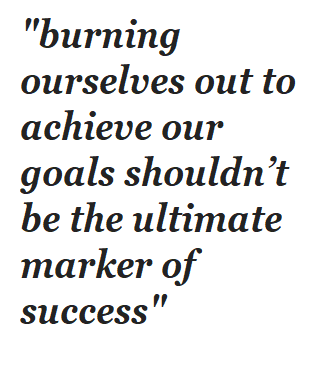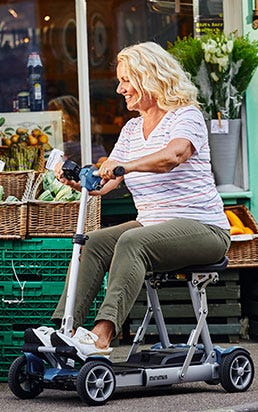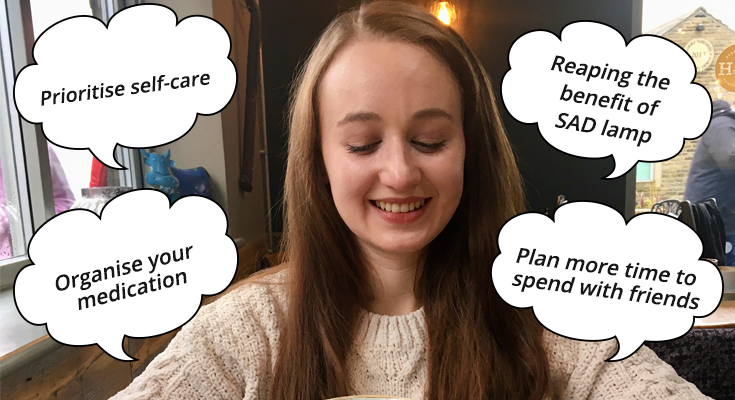Well here we are; it’s that time again. The time where social media posts become rife with meaningful life quotes scrawled out in italics and everybody under the sun declaring this year will be their year. And whilst there’s nothing at all wrong with making plans and preparations to ensure the coming months are as fulfilling as possible, the beginning of the New Year can bring a unique sort of pressure; the pressure to achieve.
From commencing an extreme weight loss journey, to backpacking around the globe, to jumping out of a plane for charity, there’s no doubt that non-disabled people capitalise on the opportunity to reform themselves, and of course, plaster their journey all over social media in the process.
And again, there’s absolutely nothing sinister about working towards a goal and being proud of it, and sharing your progress online in the hope of motivating others. But the often-inadvertent knock-on effect of this ‘New Year, New Me’ debacle is that it can leave countless others feeling insecure about their own worth.
Something I’ve been thinking about recently is where this trend for setting such elaborate annual goals even came from. Who decided that New Years’ resolutions had to be ambitious physical accomplishments to be notable? Why have we absorbed the belief that making these huge gestures is the key to unlocking happiness and contentment?
It’s as if we believe accomplishments of this kind directly impact our self-worth, and personally, I think this very idea is becoming more oppressive than empowering. For many disabled people, the inaccessible world we live in means that many of the traditional go-to resolutions that people enjoy simply aren’t inclusive. And for many chronically ill people, even if these things were technically feasible, fluctuating health and debilitating symptoms would mean they simply weren’t safe to pursue. So when you turn to social media and see people shouting about all the amazing things they’ll go on to do over the coming year, is it any surprise that many people can feel disheartened about their own situation?
Look After Your Wellbeing
2019 was a difficult year for many, for a multitude of reasons. One thing that became apparent to me, during this time, is that as a society, we simply don’t acknowledge or celebrate looking after our wellbeing the same we champion our accomplishments; the tangible ones that others can see and appreciate for themselves. It’s become natural for us all to keep pushing on towards our goals, completely neglecting the need to take care of ourselves in the process.
We’re living in an achievement-driven society, and because of that, it can be so easy to forget that our self-worth isn’t inherently tied into the things we accomplish, nor should it be. I think we could all do with a reminder that burning ourselves out to achieve our goals shouldn’t be the ultimate marker of success, especially in a society that’s constantly changing the boundaries of what success should even look like.  That’s why this year, instead of setting ambitious targets and accomplishments for myself and measuring my worth according to these, I’m turning my attention to prioritising self-care, and making sure I’m fighting as fit as possible in a world that just wasn’t designed for chronically ill people.
That’s why this year, instead of setting ambitious targets and accomplishments for myself and measuring my worth according to these, I’m turning my attention to prioritising self-care, and making sure I’m fighting as fit as possible in a world that just wasn’t designed for chronically ill people.
As well as your more predictable wellbeing facilitators, such as eating healthily, resting, and adhering to medication, my own goal for the year is to intentionally plan more time to spend with friends. And although that might sound like such a small, insignificant thing, any other person with a chronic health condition will know that so much more goes into such plans than simply spending time socialising: resting up in preparation, finding somewhere suitable for your needs, navigating the challenges of accessible travel, and again, resting up afterwards and dealing with any ‘payback’ symptoms.
Because of this, my goal is not only to enjoy time with friends, but also not to feel guilty about the time and energy such occasions require to make them happen… even if it doesn’t feel particularly productive in that moment. You have to put yourself first sometimes, even if it takes some strategising.
Find Something That Will Make You Feel Good
So, instead of either attempting to emulate the grander gestures that many non-disabled people establish at this time of year, or feeling guilty if these things are out of the question, my challenge for you is to set one mindful intention for yourself this year. Let’s find something that will make you feel good, and then celebrate those things together, just as much as we would celebrate any traditional achievements. It could be something as simple as boiling the kettle and enjoying a hot drink mid-morning, our setting time aside each week to organise your medication in advance, to save you energy during the coming days.
These intentions can be made flexible according to your needs as well: one person’s goal could be spending some more time outside, for another person it could be opening your window to let in fresh air, or if neither of those things are accessible to you, reaping the benefits of a SAD lamp during the darker months could also act as an alternative. Often, it’s the littlest things that can make the biggest difference, and I think we’re all prone to forgetting that sometimes.
Accessible Goals are Important
The overarching thing to remember is that no matter how it seems, accessible goals of this nature are no less valuable than the bigger actions we see splashed all over social media. None of this is to say that you can’t or shouldn’t dream big, of course, but ambition begins with baby steps.
In my personal opinion, being in tune with what your body needs and really taking care of your wellbeing is one of the greatest accomplishments of all; and I’m not just saying that for the sake of it. It’s one thing to say these things and another to act on them, I know, but by looking after yourself and your own unique needs, you’ll be much better placed to experience an enjoyable and fulfilling year ahead… whatever that looks like for you.
So with that in mind, I’d absolutely love to hear any of your own mindful intentions for the New Year. How will you take care of yourself? I’ll pop the kettle on, and you can tell me all about it…


 Price Match Promise
Price Match Promise
 Next day delivery, 7 days a week
Next day delivery, 7 days a week
 Nationwide Showrooms
Nationwide Showrooms
 Rated Excellent
Rated Excellent







